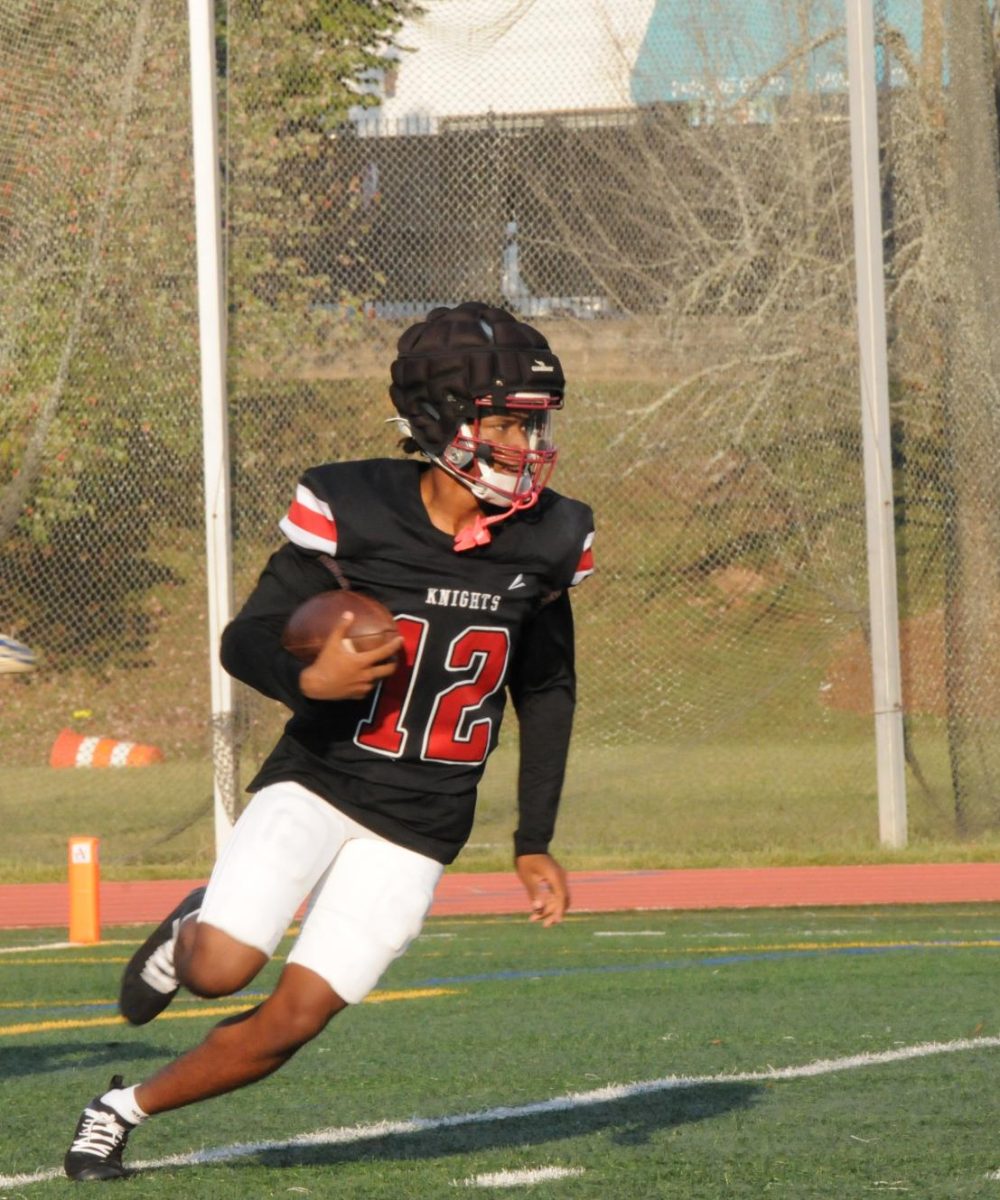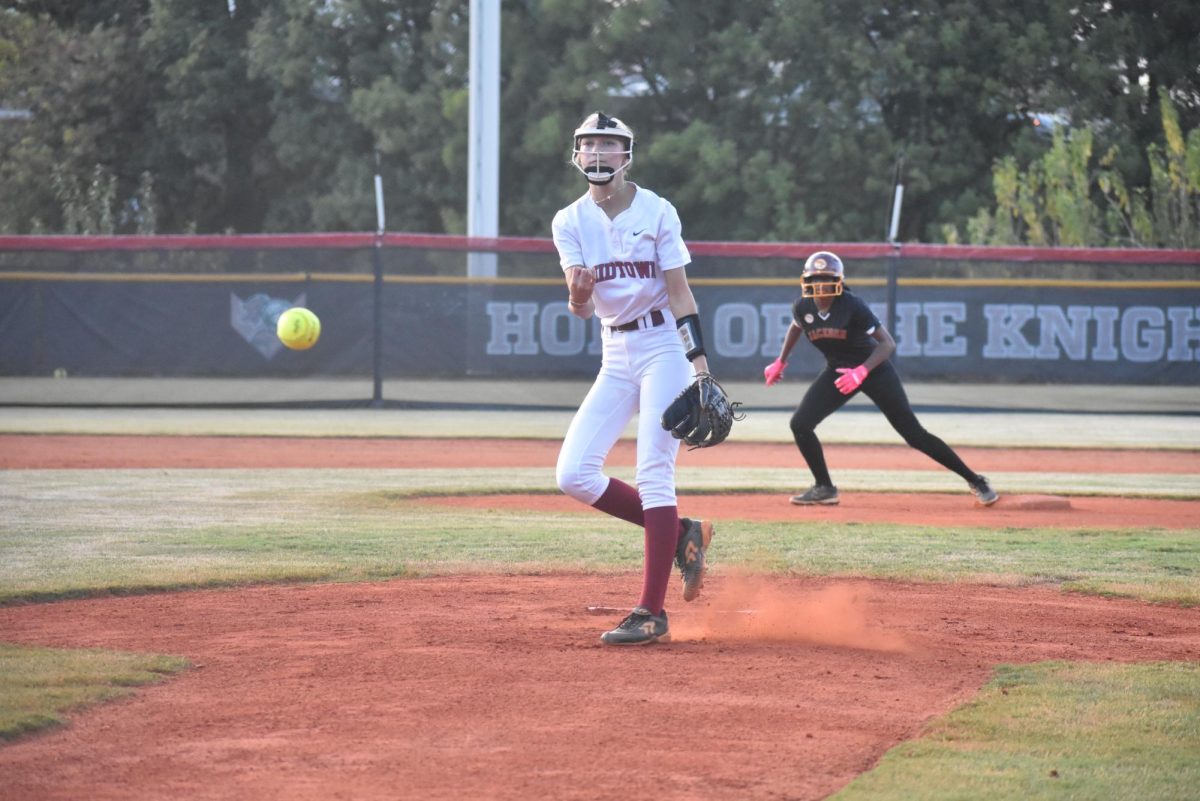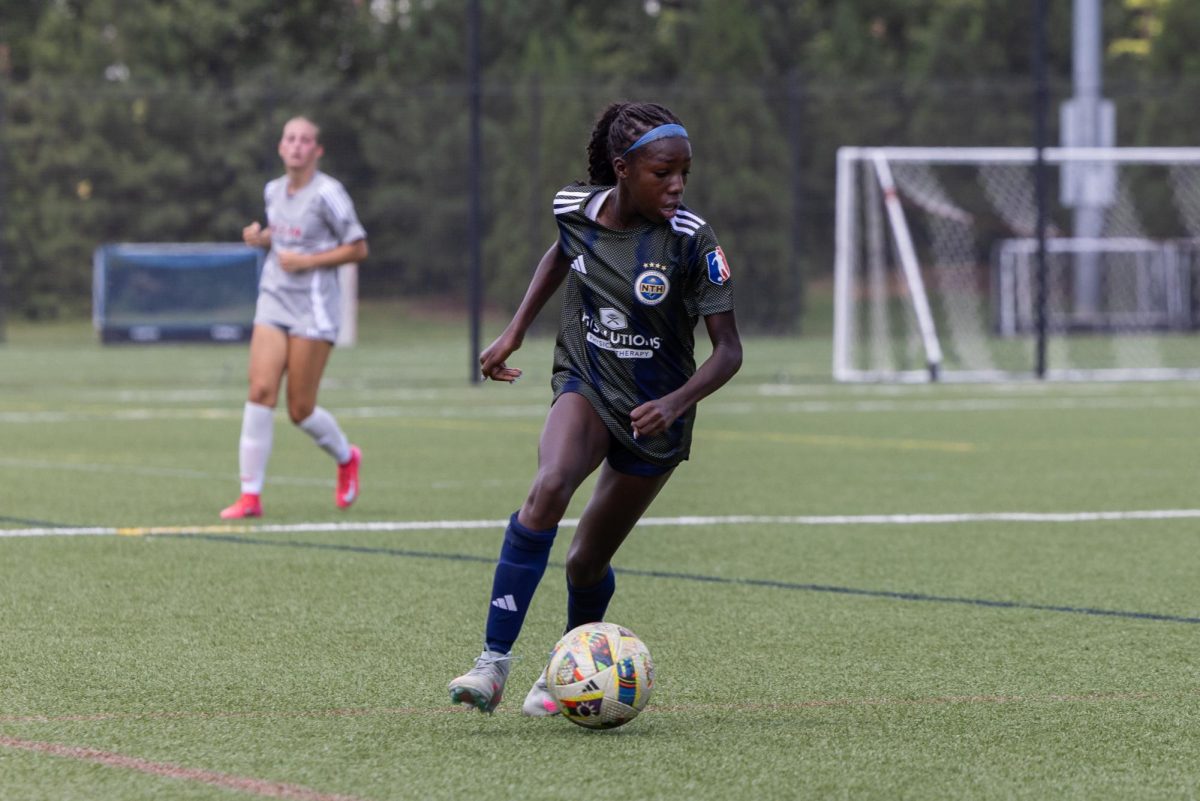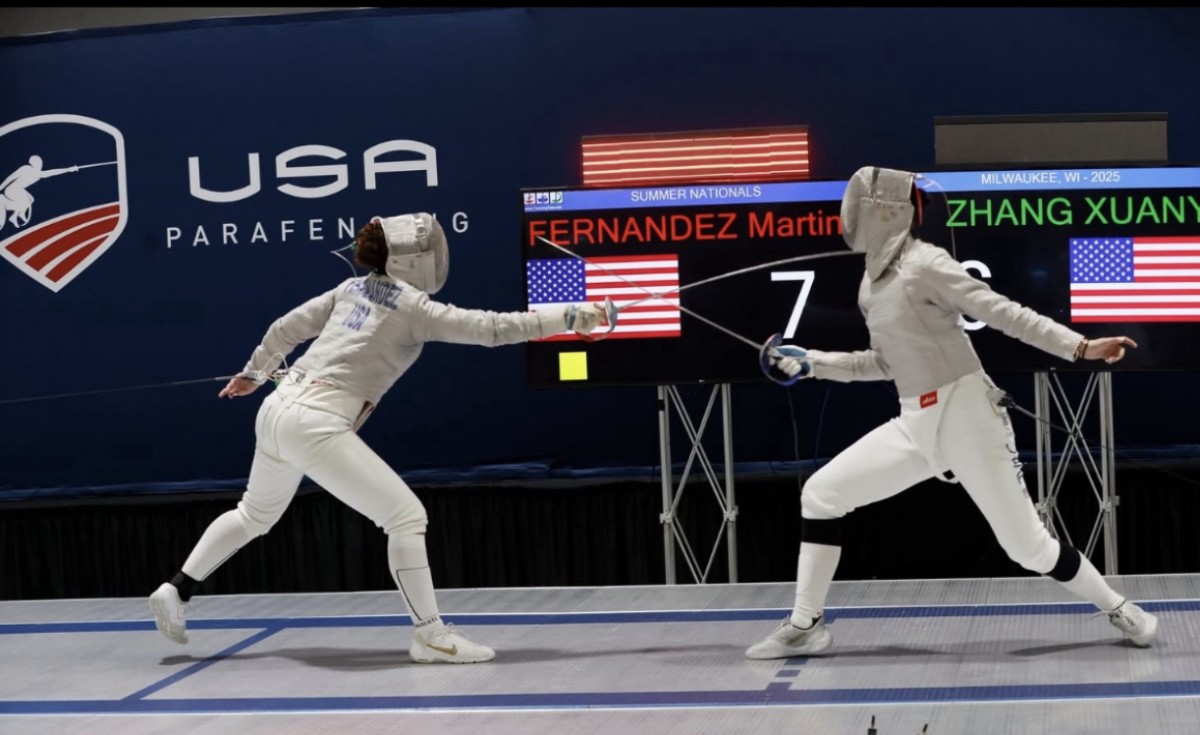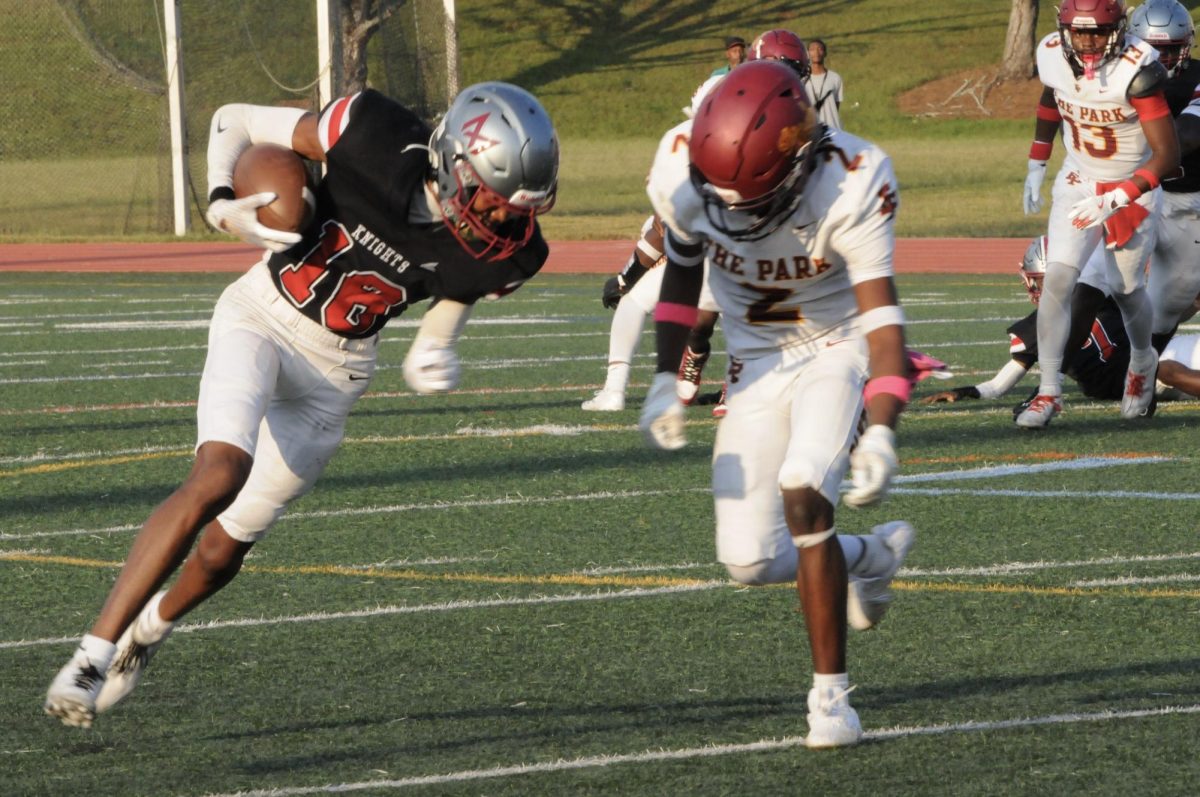
Randy Reed coached the girls track team and was a fixture in both in Grady’s athletics program and in the larger community. While still teaching and coaching at Grady, he was diagnosed with cancer and he continued the long fight against the disease until succumbing to it on Jan. 14.
His many admirers remember Coach Reed for his excellence as a coach and for his enduring positive influence both on the track and in the classroom as a math teacher. His influence on Grady’s track program and on the thousands of students he taught are a legacy that will endure long after his death.
Reed’s ties to Atlanta were lifelong. Born in the city in 1956, the 10th of 11th siblings, he graduated from Grady in 1974 and earned a bachelor’s degree in science and math from Morris Brown. He married his college sweetheart Robin Graham in 1978 and received a master’s degree in math from Clark Atlanta. He joined the Grady faculty in 1979 as a math teacher.
After taking over as the girls track and field coach, he brought the girls team to early success, said Jeff Cramer, his longtime colleague in coaching track. Reed’s girls team won the state title in 1988 in his first year of coaching girls track. Although his teams never again won the state championship, Reed was able to bring a squad to the state competition in almost every year he coached for the last 25 years, Cramer said.
The streak of state appearances is typical of the consistency that his teams showed on the track and that he modeled as their coach.
Coach Reed’s consistency was embodied by the routine he established every year. According to Kelsi Eccles, a former girls track team captain, Reed emphasized the technical side of track in the beginning of the year and would work toward individual success as the year unfolded. The team would start the year in the gym to avoid the cold and move to the track later in the season. This routine anchored Reed’s coaching and provided the track team perennial success.
Reed’s teams were known for their stellar performance in the city meets. Reed took teams in a wide spectrum of events, and that versatility fed into the team’s success. Even in a down year, Reed’s teams were able to compete because he fielded a more complete team than his competition did, Cramer said. Reed developed a reputation for fielding a team that placed in the top five at the city meet, so much so that a top-five finishes in the city were seen as another part of the Reed routine.
Reed’s greatest impact, however, wasn’t in the trophy room, but in the eyes of the kids he trained, Eccles said. The relationships he nurtured with the teams he coached allowed him to push them while also keeping the atmosphere fun and relaxed.
One former student athlete posted to Reed’s Facebook page that she remembered that Reed would randomly surprise his teams before practice with Krispy Kreme doughnuts and then make them run the calories off in practice.
Melanie Wagner, a distance runner on the girls team who will be running in her first Boston Marathon this year, told The Southerner that the unconventional lessons that Reed imparted have remained with her throughout her life.
“To this day, I run with my hands lightly clasped in the ‘OK’ position,” Wagner remembered because Reed told his runners, “The cooler you look, the faster you run!”
Colleague Laurence McCurdy said, “His brand of success was one that students could sympathize with. Students saw his success and they wanted to be like him.”
Many of his former runners and students posted fond remembrances of some other of Reed’s trademark sayings, among them are these:
“Time is money.”
“It’s a mental thing.”
“Don’t be sorry [as in lame].”
“There’s no way you can spend a million dollars.”
“You got this.”
Wagner recalled another Reed rule: he insisted that his girls wear white socks when they raced.
“Because of Coach Reed, I will NEVER wear black socks on a race day because ‘No one wants to marry a girl whose feet turn the color of her running socks,’” Wagner said.
The playful jab at marriage was indicative of the paternal role that Reed played in the lives of the girls he coached.
Alice Fike echoed the thoughts of many of Reed’s track athletes and students.
“He was truly a father to so many of us, year after year.” Fike wrote in a post to Reed’s Facebook page. “He touched so many lives in such a positive way. [He] just spent hours upon hours giving his time to explain and guide so many of us in the right direction. He made us laugh but ultimately he made us listen and understand the important lessons he was trying to teach us.”
Cramer described him as “a big teddy bear” with the kids, which translated easily into his coaching style.
Jacqueline Hughey, a former runner who now helps coach the girls team, posted to Coach Reed’s Facebook page that she will remember Reed more for his compassion than for his coaching.
“Coach always referred to his girls in their proper last names, and I still feel his INFAMOUS shoulder pat trying to assure me it’s OK,” Hughey wrote.
Fike recalled that a stream of former students in the 20s and 30s would return to Grady’s campus to visit Reed and to tell him that they were doing well and to thank him for his role in their success.
She further remembered that Reed routinely drove the members of team home after practice and that during those rides Reed’s current runners would routinely encounter Reed’s former runners on the route home.
“People on the street would flag him down to say hello and let him know they had listened to his advice and were doing well,” Fike wrote. “This was a common occurrence. I have so many memories of all of his funny sayings, his music, Krispy Kreme runs, piling into the back of his truck, being amazed by his energy and drive to prosper and most of all SHARE with others.”
For Reed, his wife and children, the sharing was a family affair.
“Coach, he always bragged about his wife’s cooking — ‘Nobody can cook like my wife.’ — and boy did we enjoy brownies and sandwiches over the years,” Hughey remembered on Facebook. “Her cobblers are the best. He was so proud of his kids and their accomplishments, a true loving father. They were always a part of the conversation on the way to a track meet.”
Fike also credited the entire Reed family.
“Now that I have a family of my own, I appreciate even more the sacrifice he made in all of the time he gave and the sacrifice Mrs. Reed and his children made,” Fike wrote. “They were a part of all the good he did all of these years. I remember Mrs. Reed sending Gatorade and sandwiches for the whole team for our Saturday meets, such kindness and consideration they showed over so many years.”
In addition to being a terrific coach and family man, Reed was an excellent teacher, and his persona on the track also extended to the classroom. He was known as coach both on and off the field, and the relationships he developed in the classroom helped him recruit for the season. Reed taught remedial math classes, but he was always able to connect to his students. Betsy Goodrich thanked Reed for his role as “the Gabe Kotter Of Grady High School” in a tribute note she posted to Reed’s Facebook page after his death.
He dealt with Grady’s version of the Sweathogs with his trademarks, wit and humor. One former student recalled that Reed would tell troublemakers in his class, “You’re cooler than the sun.”
His former students remembered that Reed wasn’t just able to build rapport with his students but that he inspired them to believe in themselves.
One such student posted on this note on Coach Reed’s page on Jan. 16: “I recall sitting on the second row in your geometry class. I can still hear you encouraging me, ‘You got it. … You know this.’ I fondly remember how you respectfully called us by our last names and how your class sessions were filled with bits of your wisdom and life lessons. Thanks for expecting the most of us and for believing in us when we gave up believing in ourselves.”
Perhaps the most touching recollection came from Soli Grace Nicolson, who graduated from Grady in 1993.
Nicolson ran briefly for the girls track team as a freshman and never had Reed as a teacher, yet more than 20 years after she graduated, Nicolson still credited Reed as being her favorite Grady teacher.
“The thing is he did not perceive his teaching or coaching as work,” Nicolson said. “When he spoke with you he made you feel like nothing else was more important in that moment. We had a lot of one on one talks, and he would even run out of the class to catch up with me and make sure I was OK.”
Nicolson was never going to add a trophy to Grady’s collection but that never mattered to Reed.
“I was short and never ran very fast, but [he] believed in me when I didn’t believe in myself. Even when I was no longer on the team [he] never let me forget that [he] had my back,” Nicolson said.
Coach Reed’s love for his students and his runners shined even after he retired from the classroom. For the last five years Reed worked with the team without teaching at Grady. In these years Reed’s cancer developed, but his commitment to the team helped him beat back his disease. His cancer receded during the season and grew in the offseason.
Now the team will compete without Coach Reed for the first time in 25 years. While Coach Reed had a personality that won’t be easily replaced, Coach Delbert Ellerton, one of the pall bearers at Reed’s funeral, will try to fill the void. He has been coaching the boys team and will now take over with a group of assistant coaches to help the team throughout the season.
The team is dedicating their season to his memory, and if Coach Reed were here, he would tell them not to worry because “they got this.”
To read the unabridged accounts of Melanie Wagner and Soli Grace Nicolson click on their names.







